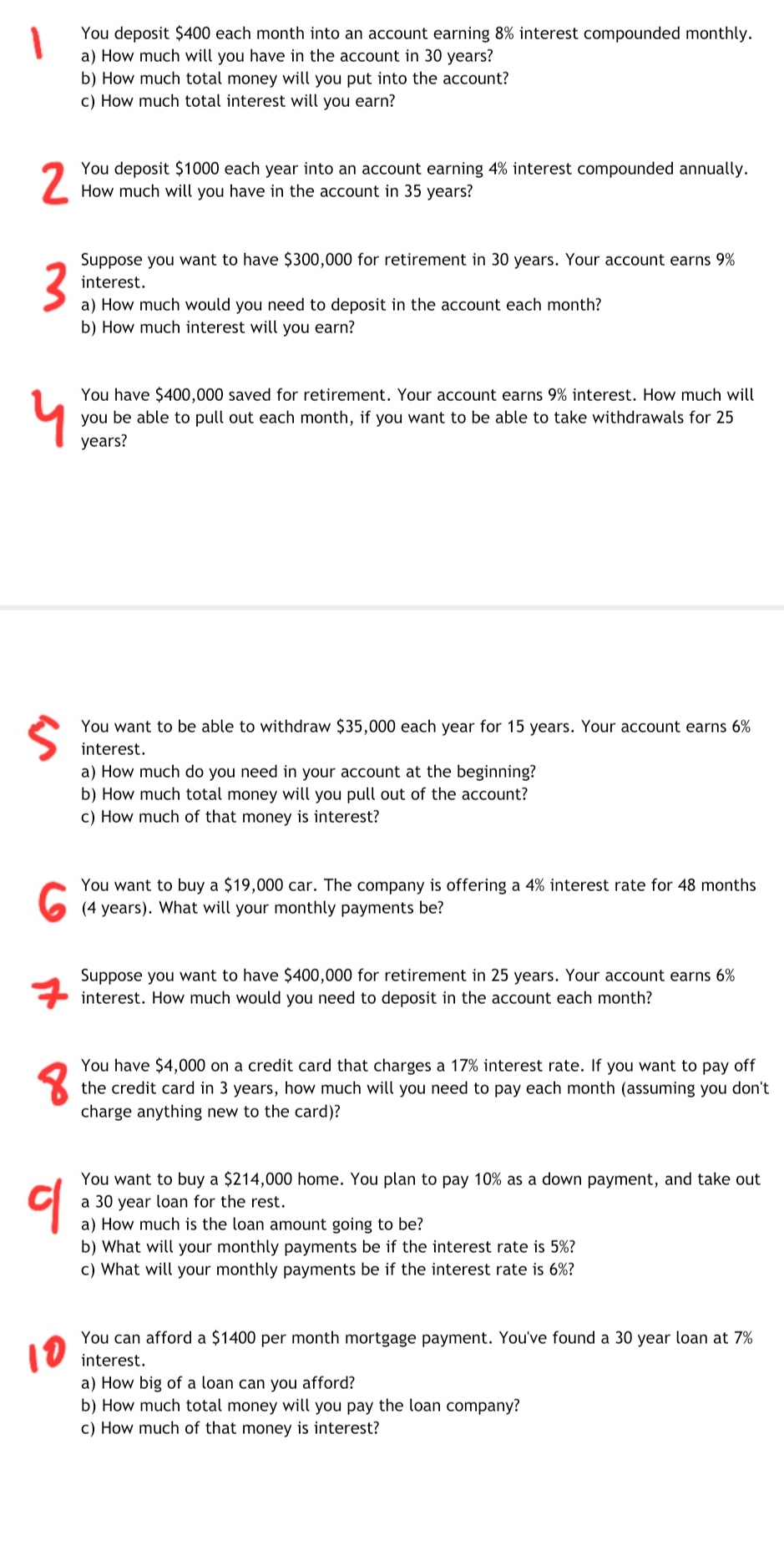Answered step by step
Verified Expert Solution
Question
1 Approved Answer
Statistics and Probability You deposit $400 each month into an account earning 8% interest compounded monthly. a) How much will you have in the account
Statistics and Probability

Step by Step Solution
There are 3 Steps involved in it
Step: 1

Get Instant Access to Expert-Tailored Solutions
See step-by-step solutions with expert insights and AI powered tools for academic success
Step: 2

Step: 3

Ace Your Homework with AI
Get the answers you need in no time with our AI-driven, step-by-step assistance
Get Started


